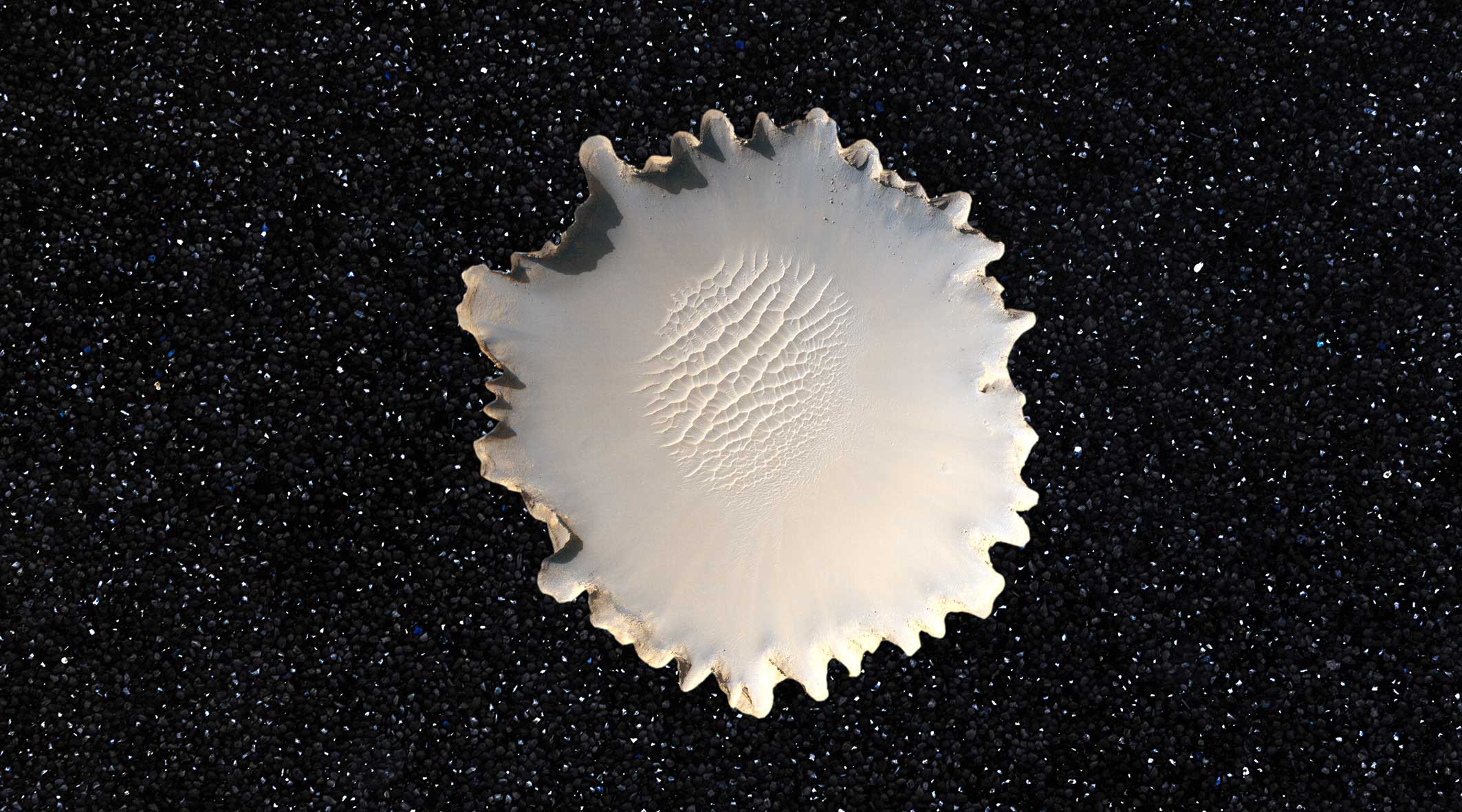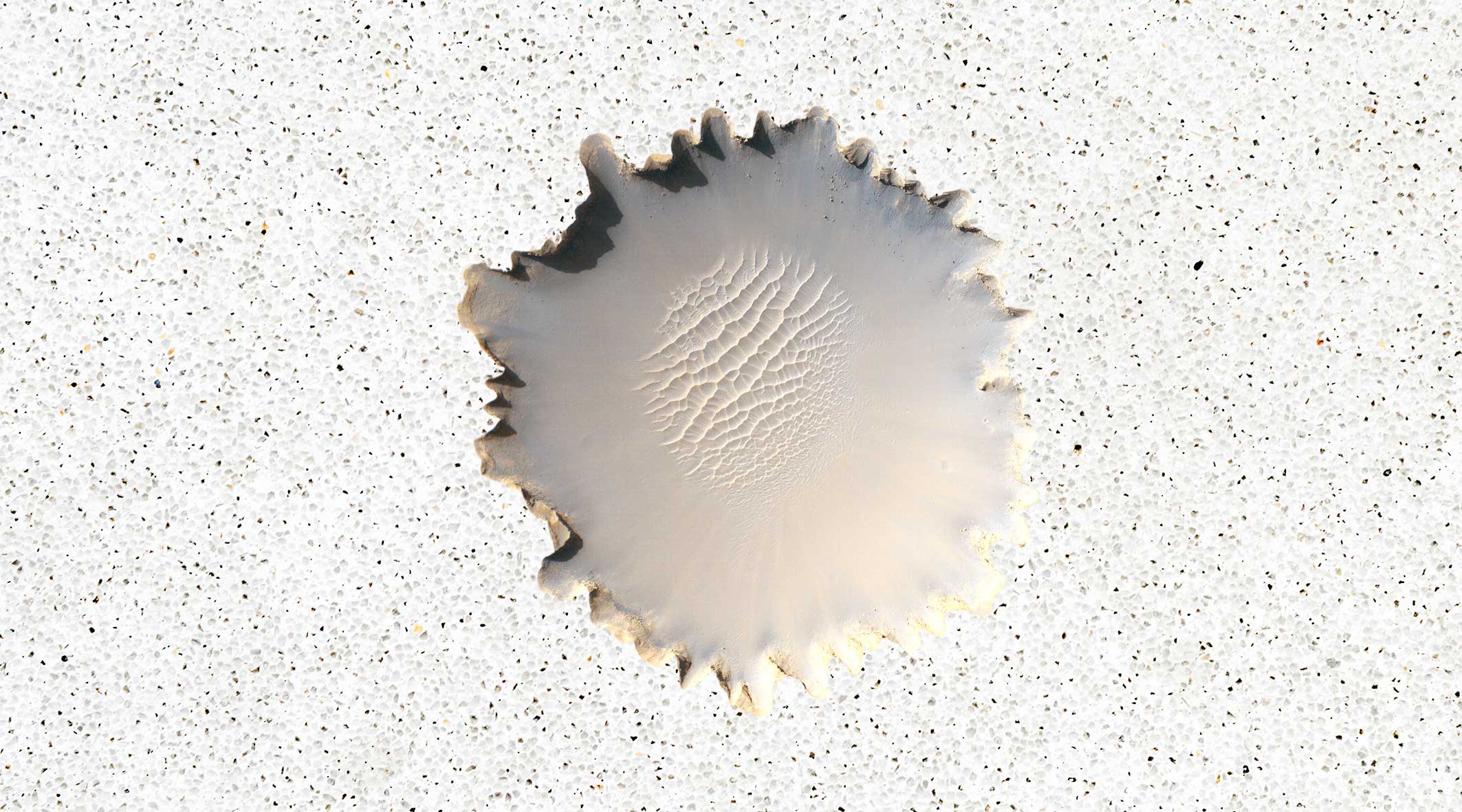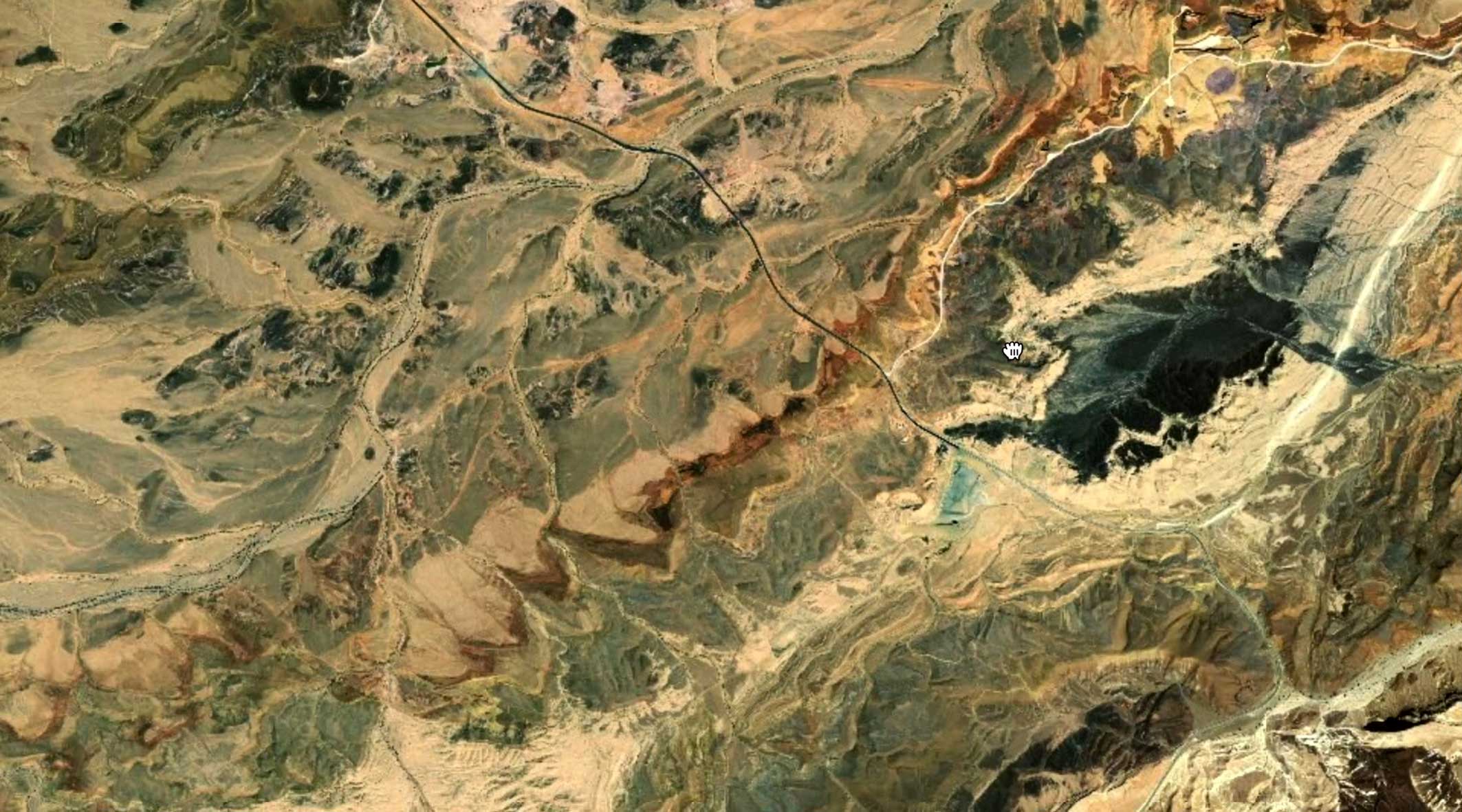Crater
It starts with a sudden hole in the ground. As the narrator’s voice explains at the beginning of Adina Camhy’s Crater, a hole in the floor of her apartment opened up overnight – a negative space, the trace or scar of a mysterious event. Accompanying this narration, as in the rest of this stringently composed film essay, we see appropriated images of initially unexplained origin. Only at the end of the work, which was created out of a cooperation with Dan Robert Lahiani, do we learn that the material comes primarily from NASA sources, a geo-information producer, various YouTube channels, and the Yad Vashem Holocaust memorial. What connects all of these finds is, on the one hand, the voiceover narrative, which draws a reflective arc based on various crater appearances on earth and in space: depth and abyss as evidence of past moments of violence. On the other hand, the frequently coarse-grained images, which are also interlocked through their surface structure, often reveal flaws: visual gaps as counterparts to a supposedly omnipotent vision. The musically subtly accentuated network (with sound design by Margarethe Maierhofer-Lischka) spreads out over far-flung materials – and yet is held together concisely by the narrow encircling and multi-perspective illumination of the crater phenomenon. Key roles are played by the Ramon crater in the Negev desert, the Israeli astronaut Ilan Ramon, who named himself after this same crater, and a drawing by the Shoah victim Petr Ginz, who depicted the earth as seen from the craters of the moon. All of this and much more is congenially interwoven in this meditation on “dynamic memorials”, whose negativity continues to keep us focused. Getting used to the real hole in the ground at some point may have proved possible, but the intractable facets of the mental phenomenon have us feeling continually uneasy, and rightly so. (Christian Höller)






